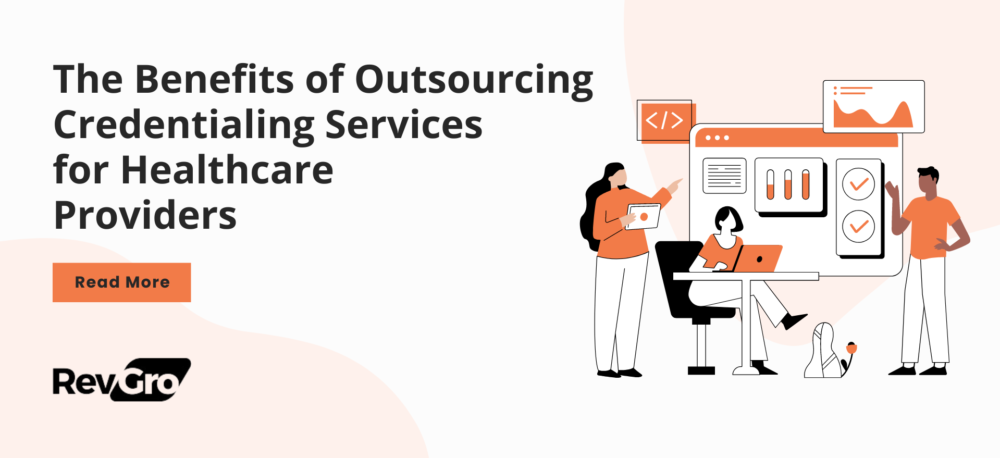
The Benefits of Outsourcing Credentialing Services for Healthcare Providers
In the fast-paced world of healthcare, it is all-important to maintain efficiency and compliance. One very critical aspect of maintaining this is credentialing—a process of verification of qualification that meets the standards in the healthcare service provision. Credentialing may be complex, time-consuming, and resource-intensive, hence many health service providers opt for outsourcing. Let’s look at the benefits of outsourcing credentialing services.
Introduction
Key Advantages of Outsourcing Credentialing
1. Focus on Core Competencies
Healthcare providers are devoted to providing quality care to their patients. Administrative tasks, such as credentialing, will take a provider’s focus away from this ultimate goal. By outsourcing credentialing, the experts will ensure that the providers’ administrative burdens are taken care of so that they can concentrate on their core responsibilities.
For instance, consider a small family practice. The physicians and staff are likely stretched thin, managing everything from patient appointments to billing. Adding credentialing to their workload can lead to burnout and decreased efficiency. Outsourcing this task can reduce stress and ensure that the process runs without a hitch.
2. Expertise and Latest Technology
Firms offering services related to credentialing have the level of expertise and the knowledge pertaining to the process and details involved with it. They are in constant touch with the new rules, legislation, and best practices, which can be very stressful for providers to do. These firms also largely use advanced technologies to hasten the credentialing process. An automated system has more data entry, verification, and tracking features than a manual one. This technology is high-accuracy oriented and comes with the least level of risks at times errors, which are costly and time-wasting.
Among the core advantages of outsourcing credentialing is that health providers can focus on their primary expertise quality medical care. This core intention often becomes overrun by the administrative burden of credentialing. In outsourcing, more attention and resources will be redirected to areas where providers can make the most impact.
A lot of credentialing companies are incorporating artificial intelligence nowadays in order to improve their accuracy and efficiency. AI is capable of quickly processing large volumes of data, spotting any discrepancies and flagging issues of concern for review thereby reducing human errors. This will not only quicken the process but also help increase the level of precision in credentialing.
For instance, a multi-specialty clinic may find it overwhelming to keep up with the credentialing requirements of different insurance plans. A credentialing service provider may utilize technology in managing such requirements seamlessly and hence ensure the clinic is compliant and eventually rids itself of delays in remuneration.
3. Compliance and Risk Management
In healthcare, it is of great importance for credentialing to stay compliant with the needed regulations. Failure to do so may not just be a cause for a lawsuit but also for penalties and denting the reputation of a provider. A company in credentialing knows what to do within the guidelines in providing medical services and, more importantly, what not to do. They can help to assure that all of your credentials are current and compliant. They also carry out regular compliance audits so as to recognize and resolve potential problems before they blow up into big issues. This proactive risk management approach saves health care providers from costly legal battles and fines. Credentialing companies ensure that all processes involved are HIPAA-compliant, which protects patient information and maintains the highest standards of data security.
Take, for example, a mental health practice that has to remain compliant with state and federal regulation. Outsourcing credentialing will enable the practice to keep with all of the standards, thereby minimizing non-compliance risks and its potential consequences.
4. Efficient and Fast
Credentialing is a high-volume process of information and verification management. For practitioners in healthcare services, it would mostly likely mean delay in taking on new providers and getting them started managing new cases. Companies that do credentialing have managed to increase the process’s efficiency.
Outsourcing allows health facilities to focus on quickly bringing new providers on board to begin seeing patients, ultimately saving time. This improves access to patients and improves the speed at which the practice achieves its revenue cycle.
For example, in the case of high turnover in a surgical center, if credentialing is being performed in-house, that could lead to huge delays. Engaging a credentialing company will speed up this process, allowing new surgeons to begin billing and performing surgeries at the soonest possible time.
For solo practitioners, this practice turns into a burden that is considered redundant at best. Hence, with the outsourcing of their provider credentialing, an individual practitioner gains significantly. This allows for such providers to be credentialed better and more promptly; thus, they get to doing their practice without experiencing any
The Bottom Line: It Makes Sense to Outsource Credentialing
There are enormous benefits of outsourcing credentialing services for any provider of healthcare. This will change the way a health-care provider does business and lets one spend much time on core competencies, access advanced technology and expertise, ensure compliance and risk management, and eventually improve efficiency with regard to turnaround time. In an industry where time and resources are both not luxuriously available, outsourcing credentialing could be a game-changer.
At RevGroMD, we understand the challenges you go through and hence are committed to bringing you all-inclusive credentialing services. Our team of experts is equipped with knowledge and geared with the right tools, set to drive the credentialing process efficiently and accurately in accordance with set timelines. For those considering outsourcing your credentialing services, we are here to help.
Call us now to learn more about how we can support your practice and help you hit your goals.
